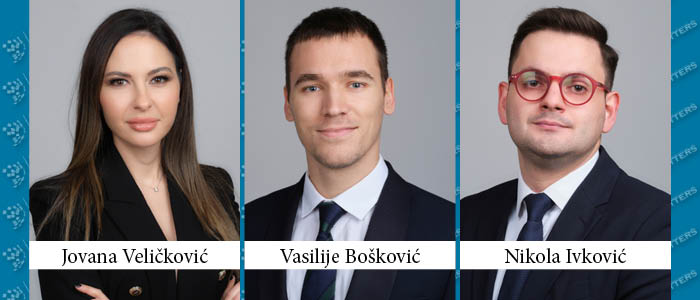All domestic or foreign creditors can lodge claims in insolvency, but international practice shows a stark disadvantage for foreign creditors despite supposed equality. This article delves into two key aspects – how foreign creditors are informed and lodge claims – shedding light on their status within Serbia’s legal framework. Key insights stem from major international documents like the UNCITRAL Model Law on Cross-Border Insolvency (MLCBI), EU Regulation 2015/848 on Insolvency Proceedings (Regulation), with Serbian insolvency primarily governed by the Insolvency Act (Act).
Informing Foreign Creditors
Informing foreign creditors is crucial for their participation in insolvency proceedings. Without such notification, they cannot register claims as they wouldn’t know about the initiated procedure. Unfortunately, no global or regional unified registry exists for open insolvency proceedings. The rules of where insolvency proceedings commence (lex fori concursus) define the entity responsible for informing creditors. However, international documents such as the European Convention on Certain International Aspects of Bankruptcy and the Regulation remain neutral, mentioning that it could be the competent court of that state or the appointed liquidator.
Foreign creditors often lack practical means for consistent updates on initiating insolvency proceedings, while occasionally specific rules for informing them are non-existent. Foreign creditors are individuals or entities without an address in the state where insolvency proceedings commence, as per the MLCBI, or creditors whose habitual residence, domicile, or registered office is in a Member State other than the one where the proceedings are initiated, as per the Regulation. Rules on informing foreign creditors constitute specific methods, formats, required elements in notifications, and the timing of informing these creditors.
Lodging Foreign Creditors’ Claims
All creditors of the insolvent debtor, whether domestic or foreign, have the right to lodge their claims. This upholds the insolvency principle of equal treatment and equality among all creditors, thereby preventing discrimination against foreign ones. The MLCBI not only addresses the right of foreign creditors to notify claims but acknowledges their equal rights regarding the initiation and participation in insolvency proceedings. In contrast, the Regulation adopts a narrower approach where foreign creditors are explicitly granted the right to lodge claims.
According to the Regulation, the notification of claims by foreign creditors involves using standard claim forms, ensuring a uniform procedure that typically includes the creditor’s name and address, the basis of the claim, the value of the claim, and the maturity date for that claim. The foreign creditor’s notification must also specify whether their claim holds priority under the rules of lex fori concursus; whether their claim is secured, and which assets serve as collateral following the rules of lex rei sitae; and whether the creditor exercises the right to compensate claims.
Position of Foreign Creditors in Serbia
Specific regulation regarding the notification of foreign creditors or the notification of their claims does not exist. This is unsurprising, given that Serbia has not ratified any international agreements governing international insolvency matters. However, this does not mean that the rules of Serbian insolvency law do not apply to foreign creditors. The Act doesn’t explicitly favor or discriminate against foreign creditors; it emphasizes equal treatment. Applying the same rules may, however, unintentionally disadvantage foreign creditors, whose situation differs from that of domestic creditors envisioned during the legislation drafting.
The Act uses public notifications to inform and invite creditors to lodge claims during insolvency proceedings. A notice of the initiation of insolvency proceedings is published on the notice board and electronic notice board of the court, in a widely circulated Serbian daily newspaper, and in the Official Gazette of the Republic of Serbia. It may also be published in other domestic and foreign media outlets.
Although the provisions of the Act concerning international insolvency reflect evident influence from the MLCBI, the legislature opted not to foresee individual notification for foreign creditors as doing so would place foreign creditors in a more advantageous position than domestic creditors. The Act allows every insolvency creditor, whether domestic or foreign, to lodge their claim against the insolvent debtor. However, in all other aspects, foreign creditors are in a subordinate position as there are no specific rules for them regarding the content of the claim or the language in which they can submit it.
By Jovana Velickovic, Partner, Nikola Ivkovic and Vasilije Boskovic, Associates, Gecic Law
This article was originally published in Issue 10.12 of the CEE Legal Matters Magazine. If you would like to receive a hard copy of the magazine, you can subscribe here.




